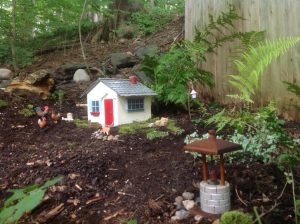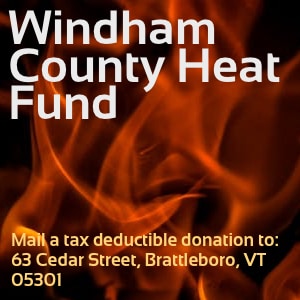“How times have changed, Dr. Beadle”
Dr. Beadle happens to be a character I created in a tape piece from eons ago, in which I got members of my family to produce a satirical collage of comedy sketches for absolutely no purpose than for the heck of it. Dr. Beadle was a character I enlisted my older brother to perform. He acted, or actually improvised, quite well, even though to this day he has absolutely no recollection of ever having ever performed it. In the dramatic radio hour we discussed climate change (this was in 1981), favorite actors (Robert Redford, and others), and acted out (on radio) scenes of religious meetings inspired by MLK, country music, Polish polkas, Shakespeare plays, Noel Coward songs, murder, and in a bizarre twist at the end something like out of Albert Camus’s The Stranger and the execution scene with a return to the beginning of the collage where Priscilla’s husband explodes while in the middle of an argument over climate change, it just brings me here. Why can’t we be as creative as we were when we were 13 years old?
These are very strange times, especially in the way they have been affecting local businesses, inner city commerce, rents, and wages of the average “worker.” For example, though NYC continues to see all of its store closing down, many of which have been the ones that are family owned (not the chain stores), last year tourism increased in NYC for the 8th consecutive year in a row. I just checked it and there were 63 million tourists who came to the City spending $44 billion. And though you have seen 6,000 retail stores in the U.S. shut down in 2018, spending at restaurants has surged; I think I read that in the summer, over a three-month period, sales increased 25%. Americans are spending a lot of money for food at restaurants, though going to restaurants has declined. They’re ordering it all to take out, so that jobs in restaurants are paying increasingly more than in the past. So there’s this surge in tourism in big cities, tons of spending at restaurants, and increasingly more online shopping that are breaking records every year. It’s a tale of two worlds. One world is the digital world, where everyone is doing everything, and then there are many places in the U.S. that are seeing all of their stores closing down. Anecdotally, my mother mentions that the Grand Cru in Baltimore was packed but, otherwise, Belvedere Square was like a ghost town. I guess one thing that Americans still like to do is go out and drink. Then they all jump in their cars and ride home. Must be a lot of inebriated drivers on the road.
I was talking to a student where I work, about families the other day. I mentioned that my cousin had a very strict disciplinarian father and that he wound up doing extremely well, probably because my cousin is a strong person and doesn’t let things get to him. The student said he had a friend from India whose parents were not disciplinarians but who pressured their son to do well academically and who were always pushing him to get A’s and do well in school so that he could get into a good university. He said that the pressure these days to exceed in school is relentless and starts pretty much as soon as they start school. They don’t seem to get any time to be children and play and wander around in the afternoons, like I remember I did growing up in Baltimore City. Instead, there’s this constant focus on exceeding at a young age, as a child, competing to get into the best, most elite high schools so that you can use that to get into the best colleges, so that you can have the highest paying job as an engineer or working in finance. College has become a path to a degree to a high-paying job. No time to waste wandering around and trying this or that or doing something you might not get an A in. Premed students are among the most miserable group of students there are because their only focus is on grades, the subject matter is of no interest to them at all.
The major changes I continually see are societal, and psychological, along with the technological, which are affecting us sociologically and psychologically in unforeseen and dramatic ways. There is more and more anxiety and depression, an increased number of suicides in Americans, especially with men.
There are two worlds out there: one is economically bleak in inner cities – places where industry once dominated, and the other world is secure, easy, peaceful, and economically well off, in the suburbs, cities in the Northeast and on the West Coast. However, this increase of concentrated wealth, especially in Manhattan, brings along with it this odd mixture of where you have rents in a neighborhood that start at $4,000 for a one-bedroom apartment and where all the storefronts are boarded up and empty for years. Some days as I walk from the subway at Houston Street up Broadway to my office, I ask myself, “Who would want to live here, where there isn’t anything except chains and empty storefronts, not one place that is useful really and where the rents are the highest in all of NYC?” Who would want to pay so much, give up so much, just so you could live in Noho?
Those times that Trump cites where America was great, are like a blip, over before you knew it. TV had just been invented, it’s hard to believe. There were three major stations in 1967 and then a couple of other local channels and PBS. That’s it. In Charles Village, in Baltimore, where I grew up, there were at one time, I believe more than 7 used bookstores in a ten block radius. People read more then, certainly books, listened to long-playing records together in the evenings, and they talked more, hung out with each other more. Summer days had a slow pace. Even Autumn was slow-paced, and you would look forward to each event, like Halloween, and Thanksgiving, and then Christmas and New Year’s, being together with family, and everybody wasn’t checking their email and their facebook page every 17 seconds. You would sit and talk to your aunts and uncles and grandparents face to face. Applying to college was stress free, and you didn’t have to pad your resumes with all sorts of useless things like being able to speak Swahili, or having volunteered to build roads in Haiti, so you looked impressive to Harvard admissions officers. I remember not putting on my college application the following things: that I was a conducting student at Eastern Music Festival, studying with the conductor Carl Roskott who had been a student of Leonard Bernstein and Seiji Ozawa, and that I had orchestrated a work that I conducted in concert at EMF in front of an audience of hundreds of people, and that I had written a book (a short novel) because I was inspired to do so after having read “Look Homeward, Angel” by Thomas Wolfe, and that I had made a pilgrimage to Thomas Wolfe’s birthplace in Asheville, North Carolina that summer. I imagine that if I had included those things today in my college application, I might have actually been able to get into Yale or even Juilliard double majoring in composition and percussion.
So, yes. Times certainly have changed, Dr. Beadle.






